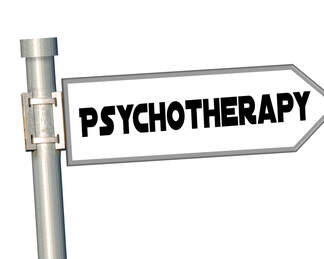|
As we are moving ever further into spring and the days are getting longer, it is important to remember the benefits of spending time in nature on our well-being. The act of existing in a natural or green space can be incredibly healing, giving us an opportunity to unplug from the modern world, and reground ourselves.
So, what specific benefits can we gain from spending time in nature? Stress Reduction Numerous studies have demonstrated the stress-reducing effects of spending time in natural environments. For example, a study published in the Journal of Environmental Psychology found that participants who engaged in a 50- minute walk in nature experienced a significant reduction in anxiety and rumination compared to those who walked in urban environments. In addition to this, a meta-analysis conducted by researchers at the University of Essex revealed that exposure to natural environments led to greater reductions in levels of cortisol, the primary stress hormone, compared to non-natural settings. These findings underscore the ability of nature to provide a calming and therapeutic refuge from the pressures of daily life. Improved mood and emotional well-being Spending time outdoors has been shown to boost mood and enhance emotional well-being. A study published in the International Journal of Environmental Health Research found that participants who engaged in outdoor activities such as gardening reported higher levels of life satisfaction and lower levels of depression and anxiety. Furthermore, research conducted at the University of Michigan found that spending just 20 minutes in nature significantly boosted positive emotions such as awe, gratitude and joy. These findings show the profound impact that even short doses of nature can have on our mental and emotional states. Enhanced Cognitive Function In addition to its emotional benefits, connecting with nature has been shown to improve cognitive function and attentional capacity. A study published in the Journal of Environmental Psychology found that children with attention deficit hyperactivity disorder (ADHD) demonstrated improved concentration and impulse control after spending time in green outdoor settings. Similarly, research conducted at the university of Illinois found that exposure to natural environments improved cognitive performance and attention in adults. These findings suggest that spending time in nature can improve the mental fatigue and cognitive overload that often accompany modern living. Promotion of Physical Activity Engaging in outdoor activities naturally encourages physical movement, which has its own benefits for mental health. According to the World Health Organisation, regular physical activity can reduce the risk of depression, cognitive decline, and anxiety, while also enhancing self-esteem and overall well-being. Research has also shown that exercising in natural environments can lead to greater enjoyment and adherence compared to indoor exercise settings. A study published in the International Journal of Environment Research and Public Health found that individuals who engaged in outdoor physical activity reported higher levels of enjoyment and satisfaction, leading to increased motivation and adherence to exercise regimens. Looking after our well-being is a vital part of life, and spending time in nature can be a significant step toward doing this. If you feel that you need any support or guidance in facing life's struggles or looking after yourself, and want to talk to a professional, please feel free to get in touch. It is very natural from time to time that we can find ourselves feeling dissatisfied with how we look, or feeling uncomfortable in our own bodies. For some of us, this may occur every once in a while, however, for a great number of people this is a daily, ongoing struggle that has a significant impact on their ability to live a fulfilled and happy life.
In some circumstances, this may result in the development and diagnosis of an eating disorder, such as anorexia nervosa, orthorexia or binge eating disorder. It is important to recognise that anyone can be affected by a challenging relationship with their body, and it is not a requirement to have a formal diagnosis to still be worthy of support. Recovery from an adverse relationship with food or body image is entirely possible, with the right support and resources. Taking the following steps can be a good way to get you on track to healing your relationship with food and your body and help you to live a more fulfilled life. Healing a relationship with food Acknowledge that you are struggling This is one of the most important things you can do. By recognising its existence we begin to break down the barriers to addressing our feelings toward ourselves and food which can help us to be more compassionate to ourselves. Build a support system Surround yourself with healthy relationships that support and encourage you. Being as open as you can and talking about how you feel can help others to be able to offer the support you need. There are also organised support groups, specifically set up to offer peer support for those struggling with their relationship with food. These can give you the opportunity to connect with others who share similar experiences. Gain more information Having a greater understanding of what you are experiencing may be beneficial and help you to recognise you are not alone. However, be careful when searching the internet for information as some sites will not always have your best interests in mind. Focusing any research toward legitimate sources of information, such as the NHS and Mind is advisable. Look after yourself Make sure you are trying your best to maintain other elements of your life that do not involve food or your relationship with your body. Keeping involved in hobbies and going to social events are a great way to maintain a sense of purpose in life. Making sure you are looking after yourself in a day-to-day sense such as getting enough sleep and keeping up with personal hygiene can go a long way. This will be very dependent you and where you are on your journey, so the important thing to focus on is doing things, and filling your time, with what is right for you, specifically. Recognise your achievements Even the act of openly admitting to yourself that you are struggling is a massive step that involves no small amount of courage. Taking time to recognise the steps you are taking along the way will help to keep you motivated and aware of what is working for you. Seek professional support If you feel that you are in any way struggling with your relationship with food or your body image, having professional support is important. The best person to speak to is your GP, who can support you in maintaining your physical health and discuss any further referrals to more specialist services. It can also be a good idea to speak to a counsellor if you feel ready. A counsellor or psychotherapist can help you to move forward, by helping you to explore and gain clarity around your feelings and thoughts, so that you can gain a better understanding of yourself and the struggles you face. A vast number of people experience a difficult relationship with food and their body, to some degree or another. It is important to remember that you are not alone in this and support in out there. Everyone's journey is unique and deserves support and care. If you feel that you are struggling, reach out to a counsellor and your GP to discuss what support is available. With a statistical increase in mental health struggles it is as important as ever for us to take care of ourselves. Research has indicated that 1 in 6 adults on a weekly basis struggle with their mental health in some capacity such as anxiety with a further 1 in 5 also consider taking their life (Mental Health Foundation, 2016). Psychotherapy can be an important source of support for people in looking after their mental health. It is designed to be a safe space to bring your struggles and speak about them with somebody who is completely removed from the situation, devoid of personal judgement or bias. With the therapist in this position in your life, looking in from the outside, they can aim to provide clarity by viewing the bigger picture. They do not take a stance of telling you what to do, but instead can use this perspective to ask questions and pose observations that you may not have considered yourself. It is important to ensure that you have a competent and ethical therapist to make the most from psychotherapy. Whilst providing a simple space for you to share your problems, a qualified therapist can work with an evidence based toolkit to support you through your problems, and in certain cases help to address more complex issues such as trauma. Having a therapist who is qualified and, most importantly, trustworthy is vital here to ensure your struggles are addressed in a safe manner, whilst respecting the impact that they have on your life. Psychotherapy can be for everyone, and you do not have to be struggling with something that is having a major impact on your life to consider approaching a therapist. For some it can be a good space to increase their self awareness, and learn more about themselves in order to address certain behaviours or aspects of their life that they would like to see changed. A good therapist will see the significance of your struggles to you and address them from your point of view as a valid factor in your life.
|
|




